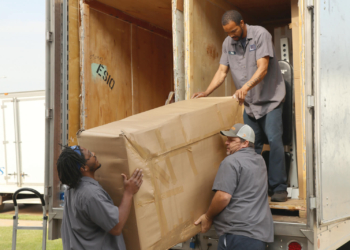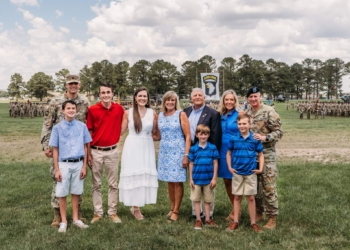Many military couples feel pressure, real or imagined, to spend a lot of time and money traveling to visit extended family. It may take experiences or difficult conversations to realize that each service member or family needs their own approach to military leaves. Following are tips from experienced veterans and military spouses sharing ways to set boundaries if summer or holiday travel has become a source of stress.
Leave is for rest
Military families have expressed frustrations about traveling home, in part, because there is an expectation that they will work around others’ plans. Planning a schedule to stick with allows you to politely ask others to make time to see you.
“Families must understand this is a period of rest for the service member and to deprive them of rest could be dangerous,” said Roger Broussard, a former military and civilian pilot who now serves as creative director of Pilot School Hero.
If service members are visiting family, Broussard suggested having one large, planned gathering.
“There is a chance to see the service member without the event purely being about them,” he said. “This allows everyone to meet and make memories, but doesn’t necessarily force the service member into a long-term stay or into a spotlight.”
Georgia P. Davis, a military spouse since 2001, said that in the beginning of her time as a military spouse their parents made comments about who they spent more time with.
“We had a ton of growing into ourselves,” she said.
They learned to better set boundaries to protect themselves.
“I had to forgive and realize that my family wasn’t what I had thought they would be like, but I could love them how they are and invite them into the experiences that I wanted to have with them,” she said.
Get creative with meet-ups
Davis’s sister became a military spouse too and Davis said she never wanted her sister to “have the same obligation and resentment of family not visiting.”
“So I made extra efforts to see her, especially when our husbands were deployed. We visited them at each of their duty stations,” she said.
Traveling to each other could become an adventure. This eventually evolved into “Cousin Camp” for their children. Davis invited her nieces and nephews to Texas for a week of sight-seeing (and matching T-shirts), and they plan to make it a recurring event in different places.
Davis also learned that planning vacations with an open invitation to extended family worked well, starting with a trip to Disney. After her husband commissioned as a chaplain in 2018 they attended a training where a National Guard two-star general said cruises with family helped improve his work-life balance.
“It was the only place he found where work could not reach him. We knew that that was what we wanted to experience too,” she said.
Susan Lee, content creator of the lifestyle website Hey Ms. Lee, has been a military spouse for five years, already realizing how each move affects family time. At their first duty station, she was close enough for weekend trips, but now she lives overseas.
She said open communication is an important aspect of family visits.
“Fortunately, my parents and my in-laws have a great relationship. My in-laws are former military, so they are empathetic to our situation, but we still try to do what is fair,” Lee said.
Their families “agreed to visit us in Germany rather than having us travel to multiple parts of the U.S. It was my in-laws’ first time visiting Europe and to make the flight worthwhile, they stayed for two weeks.”
Prioritize ahead of time
Renelle Wolff, a military spouse, mother, clinical social worker and licensed therapist, said it’s “valid” to remember healthy boundaries are needed “to maintain a healthy mindset, mind and body.”
“Examples of boundary setting can look like: this year we are going to spend Christmas as our little family; it’s our time to reconnect,” she said.
Boundaries usually need to be set, according to Wolff, because someone has created “an uncomfortable feeling, emotion or situation” previously, and family might push back or try to change your mind with guilt.
“If so, a clear, ‘No, we will not be traveling this Christmas,’ may be the best option,” she said. “This type of statement gives a very clear boundary.”
Instead of waiting until the homecoming, holiday or family event, have family discussions at times when you don’t need a quick decision. Discuss travel budgets, what events and holidays to prioritize, how to handle large events, and travel dreams to maximize your time.






































